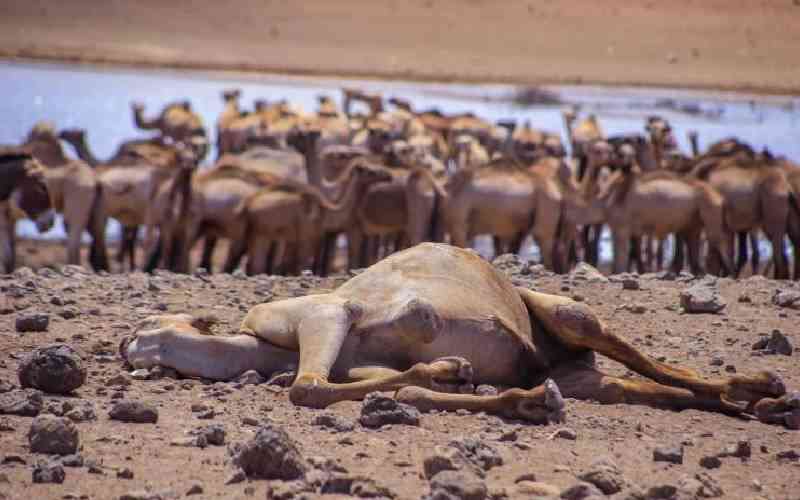
A new study shows unprecedented heat is likely to lead to the next mass extinction since the dinosaurs died out, eliminating nearly all mammals in some 250 million years time.
The research, published recently in Nature Geoscience and led by the University of Bristol, presents the first-ever supercomputer climate models of the distant future and demonstrates how climate extremes will dramatically intensify when the world's continents eventually merge to form one hot, dry and largely uninhabitable supercontinent.
The findings project how these high temperatures are set to further increase, as the sun becomes brighter, emitting more energy and warming the Earth.
Tectonic processes, occurring in the Earth's crust and resulting in supercontinent formation would also lead to more frequent volcanic eruptions which produce huge releases of carbon dioxide into the atmosphere, further warming the planet. Mammals, including humans, have survived historically thanks to their ability to adjust to weather extremes, especially through adaptations such as fur and hibernating in the cold, as well as short spells of warm weather hibernation.
While mammals have evolved to lower their cold temperature survivable limit, their upper-temperature tolerance has generally remained constant.
This makes exposure to prolonged excessive heat much harder to overcome and the climate simulations, if realised, would ultimately prove unsurvivable.
Lead author Dr Alexander Farnsworth, Senior Research Associate at the University of Bristol, said the newly-emerged supercontinent would effectively create a triple whammy, comprising the continentality effect, hotter sun and more carbon dioxide in the atmosphere, of increasing heat for much of the planet.
"The result is a mostly hostile environment devoid of food and water sources for mammals," Farnsworth said.
- Study links rising temperatures to spike in stillbirths across Africa
- How plastic is contributing to climate change
- Burning reality: Dark skin faces new climate threat
Keep Reading
"Widespread temperatures of between 40 to 50 degrees Celsius, and even greater daily extremes, compounded by high levels of humidity would ultimately seal our fate. Humans - along with many other species - would expire due to their inability to shed this heat through sweat, cooling their bodies."
Although human-induced climate change and global warming is likely to be a growing cause of heat stress and mortality in some regions, research suggests the planet should largely remain habitable until this seismic landmass change in the deep future. But when the supercontinent forms, findings indicate only somewhere between 8 percent and 16 percent of land would be habitable for mammals.
Co-author Dr Eunice Lo, Research Fellow in Climate Change and Health at the University of Bristol said It is vitally important not to lose sight of our current Climate Crisis, which is a result of human emissions of greenhouse gases.
"While we are predicting an uninhabitable planet in 250 million years, today we are already experiencing extreme heat that is detrimental to human health. This is why it is crucial to reach net-zero emissions as soon as possible," she explained.
The international team of scientists applied climate models, simulating temperature, wind, rain, and humidity trends for the next supercontinent - called Pangea Ultima - expected to form in the next 250 million years. To estimate the future level of carbon dioxide the team used models of tectonic plate movement, ocean chemistry and biology to map out inputs and outputs of carbon dioxide.
 The Standard Group Plc is a multi-media organization with investments in media
platforms spanning newspaper print
operations, television, radio broadcasting, digital and online services. The
Standard Group is recognized as a
leading multi-media house in Kenya with a key influence in matters of national
and international interest.
The Standard Group Plc is a multi-media organization with investments in media
platforms spanning newspaper print
operations, television, radio broadcasting, digital and online services. The
Standard Group is recognized as a
leading multi-media house in Kenya with a key influence in matters of national
and international interest.











